
Professor Pablo Lamata
Professor
- Director, DT4Health CDT
Research interests
- Imaging sciences
Contact details
Biography
Prof. Lamata has developed his academic career at King’s, Oxford, Madrid and Zaragoza, supported most of the time with personal awards and fellowships. He has worked at Siemens, been an advisor for successful spin-outs such as Ultromics, and lived an entrepreneurial adventure called Congenita.
He is the Director of the Centre for Doctoral Training in Digital Twins for Healthcare (DT4Health CDT).
He is group leader of the Cardiac Modelling and Imaging Biomarkers (CMIB) group. The group develops technologies to build the vision of the digital twin in cardiovascular medicine, where cardiologists will use their computer-enhanced ability to reason with clinical data and provide a preventive and personalised healthcare.
Research

Centre for Doctoral Training in Digital Twins for Healthcare
DT4Health brings together a world-class multidisciplinary team of supervisors to train future innovation leaders to articulate and materialise the Digital Twin vision in healthcare.
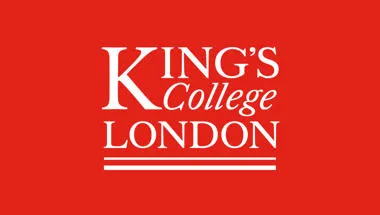
Echoes
An app which captures the sound of your heart. Designed to find out whether phones’ inbuilt microphones are up to the task of at-home health monitoring.
Project status: Ongoing
News
Thousands of cardiac 'digital twins' offer new insights into the heart
For the first time, researchers have created over 3,800 anatomically accurate digital hearts to investigate how age, sex and lifestyle factors influence heart...
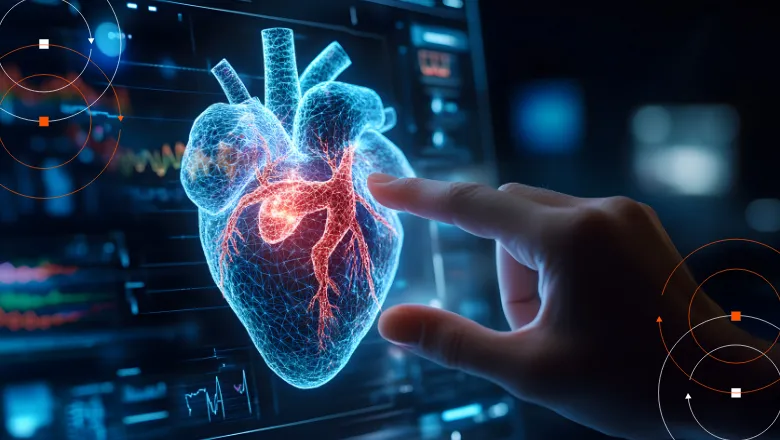
Researchers develop non-invasive method to assess diastolic function via pressure quantification in the heart
A team of researchers from the School of Biomedical Engineering & Imaging Sciences, Rikhospitalet in Norway and partners in Japan and France have developed a...
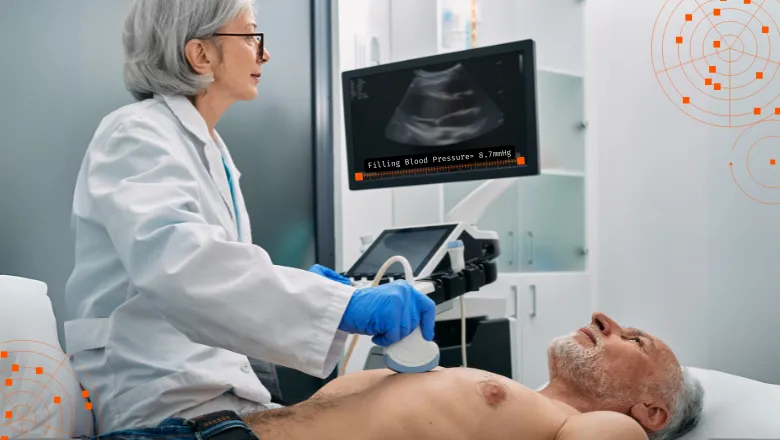
3D heart modelling research offers non-invasive diagnosis and treatment options for aortic stenosis
The 3D printing of intricate anatomical structures has become increasingly sophisticated in line with advances in imaging technology, with the use of printed...
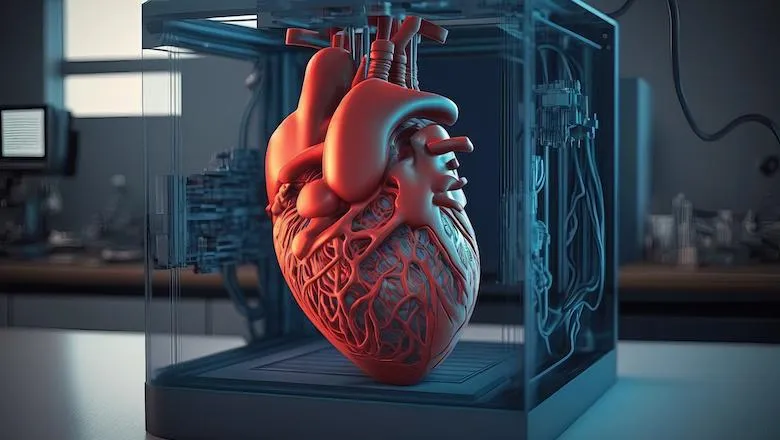
New fetal shape analysis can predict need for baby's life-saving surgery
Coarctation of the aorta is one of the most challenging conditions to diagnose before birth.

Smartphones show promise as electronic stethoscopes
A mobile phone app which records a user’s heartbeat could pave the way for doctors to monitor cardiac patients remotely, new research suggests.
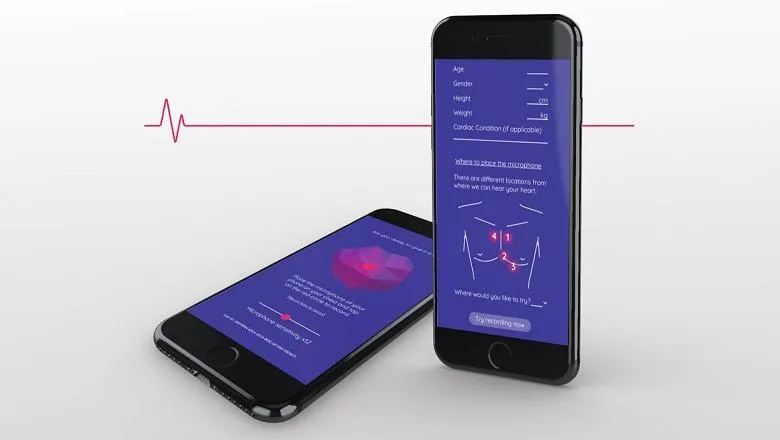
New MRI method will better inform surgical decisions for babies born with a heart defect
A novel 10-minute MRI scan could help surgeons better plan for a congenital heart defect

3D pattern linked to infarct risks identified by researchers
With their findings, patients will know the risks of suffering a major cardiovascular event such as reinfarction just two days after an infarct

Researchers reveal impact of obesity on the heart's anatomy for young children
The results have the potential to aid the detection of individual future risks during adulthood.

Changes in heart shape can predict future sudden cardiac arrest
Preliminary research has found that changes in the shape of the heart could predict sudden cardiac arrest and can be applied to other diseases

Kalostasis: major installation on aorta featured at Venice Biennale 2021
The major installation between heart researchers and designers is on display at the Venice Biennale

Events
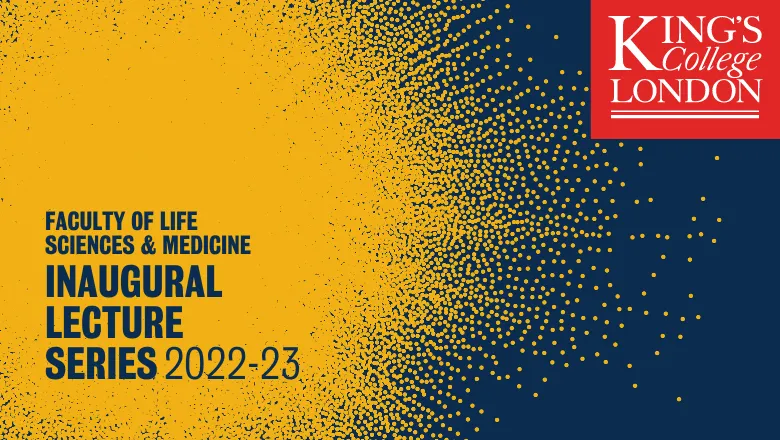
Inaugural Lecture: Professors Pablo Lamata & Miraz Rahman
Inspiring talks from some of our brightest minds
Please note: this event has passed.
Features
Capturing the beauty of our heartbeat
Installation to explore the beauty of heart flow

Research

Centre for Doctoral Training in Digital Twins for Healthcare
DT4Health brings together a world-class multidisciplinary team of supervisors to train future innovation leaders to articulate and materialise the Digital Twin vision in healthcare.

Echoes
An app which captures the sound of your heart. Designed to find out whether phones’ inbuilt microphones are up to the task of at-home health monitoring.
Project status: Ongoing
News
Thousands of cardiac 'digital twins' offer new insights into the heart
For the first time, researchers have created over 3,800 anatomically accurate digital hearts to investigate how age, sex and lifestyle factors influence heart...

Researchers develop non-invasive method to assess diastolic function via pressure quantification in the heart
A team of researchers from the School of Biomedical Engineering & Imaging Sciences, Rikhospitalet in Norway and partners in Japan and France have developed a...

3D heart modelling research offers non-invasive diagnosis and treatment options for aortic stenosis
The 3D printing of intricate anatomical structures has become increasingly sophisticated in line with advances in imaging technology, with the use of printed...

New fetal shape analysis can predict need for baby's life-saving surgery
Coarctation of the aorta is one of the most challenging conditions to diagnose before birth.

Smartphones show promise as electronic stethoscopes
A mobile phone app which records a user’s heartbeat could pave the way for doctors to monitor cardiac patients remotely, new research suggests.

New MRI method will better inform surgical decisions for babies born with a heart defect
A novel 10-minute MRI scan could help surgeons better plan for a congenital heart defect

3D pattern linked to infarct risks identified by researchers
With their findings, patients will know the risks of suffering a major cardiovascular event such as reinfarction just two days after an infarct

Researchers reveal impact of obesity on the heart's anatomy for young children
The results have the potential to aid the detection of individual future risks during adulthood.

Changes in heart shape can predict future sudden cardiac arrest
Preliminary research has found that changes in the shape of the heart could predict sudden cardiac arrest and can be applied to other diseases

Kalostasis: major installation on aorta featured at Venice Biennale 2021
The major installation between heart researchers and designers is on display at the Venice Biennale

Events

Inaugural Lecture: Professors Pablo Lamata & Miraz Rahman
Inspiring talks from some of our brightest minds
Please note: this event has passed.
Features
Capturing the beauty of our heartbeat
Installation to explore the beauty of heart flow

